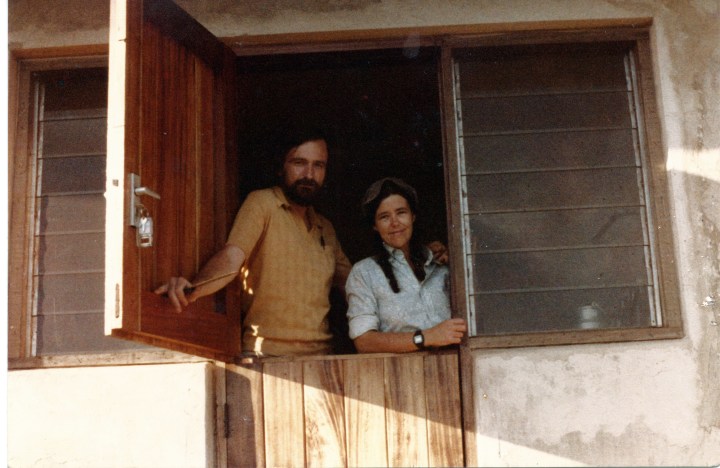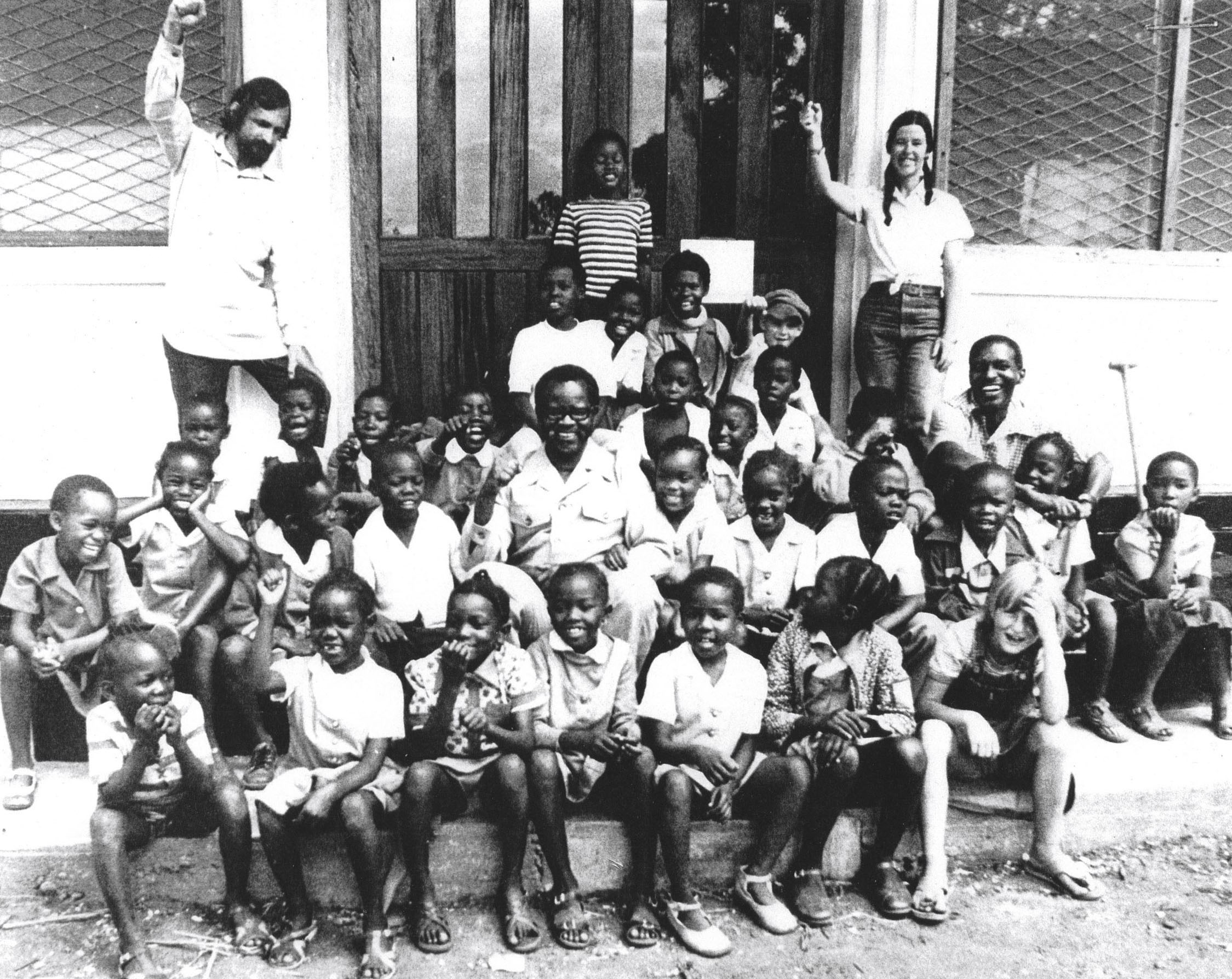OP-ED
Reflections of a Wayward Boy: Setting up the primary division of Solomon Mahlangu Freedom College – chronicle of an ANC decline foretold

Italian Marxist Antonio Gramsci advised that one should always exercise pessimism of the intellect and optimism of the will. As the Bell family flew from New Zealand in 1980 to start the ANC’s primary school in Tanzania, I exercised only optimism. This was based on a series of wished-for assumptions which I passed on to Barbara and the children. Reality ultimately provided a huge shock.
When we had been forced out of Zambia in 1970, I feared the ANC might implode, given the tensions and corruption that existed. And when, in the wake of the 1976 rebellion in South Africa, the ANC announced the establishment of a school for exiles, I idealistically added two and two together – and made a rapid six or seven.
My assumption was that, since the ANC was able, evidently, to start preparing properly for a liberated South Africa, it had become a united, efficient and egalitarian movement. So, when ANC president OR Tambo asked us to start the primary division at the Solomon Mahlangu Freedom College (Somafco), we readily agreed. The school was sited on an abandoned sisal plantation at Mazimbu, north of the Tanzanian provincial town of Morogoro.
But, from the moment we landed at Dar es Salaam it was evident that the lack of organisation we had known in the past persisted: there was nobody to meet us and we were rescued after six hours by a friendly Tanzanian official who telephoned “one of your comrades I know” to rescue us.
Later, after checking in at the ANC office, promised transport to take us to the bus station failed to arrive and we managed to get to Morogoro in the afternoon, partly via a ride hitched with a local accountant. But the local ANC office was closed. Hours after nightfall we finally managed to find a taxi driver who knew where Mazimbu was and who drove us there.
It was hardly an auspicious beginning, but the enthusiastic reception in Mazimbu that night from school secretary Hettie September, and, in the morning, from secondary school head Winchi Njobe and his teacher wife, Markho, helped to allay a growing sense of disillusionment and concern. Besides, we knew that in August of 1980, the third national education council of the ANC was scheduled to be held at Somafco: it would be then that the policies for the schools, based on the democratic principles enunciated by the ANC, would be agreed. Barbara and I set about preparing a curriculum outline for the model primary school we envisaged.
But we soon became aware of an undercurrent of tension which, at the time, we did not understand. A member of the construction staff called around one night to warn us “in strict confidence” not to trust Njobe. The principal was, he said, “really PAC” (Pan Africanist Congress) and had, in 1976, attended the Transkei independence celebrations. Neither of these allegations bothered me overmuch at the time, but would surface later when we too got caught up in an atmosphere of paranoia that developed.
It was also only much later that we realised we had walked into the middle of a protracted battle between ANC nationalists and communists. In our simplistic analysis at the time, it was only Us and the apartheid enemy. Anyone not for Us must be working for “the other side”. So, the scene was set for a series of battles, most of which we would lose, although we based our arguments on the expressed policies of the ANC and on the published decisions of that 1980 education council.
Major figures at the council were educational “heavyweights” from abroad such as Caroline Mogadime from Canada and Harold Wolpe and Mohammed Tikly from Britain. They tended to be deferred to and were enthusiastic about our curriculum.
A worrying factor was that both Wolpe and Tikly approached me at the start of the meetings to suggest that I should propose that the primary division be kept separate from the secondary school. They never said why and I thought the suggestion ridiculous, so, when our curriculum and the overall – “progressive” – policies for Somafco were adopted, I argued that we were one entity. And so it was that Barbara and I volunteered unwittingly to become a minority in the feuding Somafco hierarchy.
These ANC policies applied in particular to discipline and, expressly, to banning the use of corporal punishment. But, once the council ended and the dignitaries had departed, policies and principles were ignored. At a mass meeting on the use of corporal punishment, I quoted various studies and historical precedents about the harmful nature of corporal punishment. I was castigated, among other things, for “reading too much”. But the then regional commissar and future ANC deputy secretary-general intervened to insist that “as the conscience of the ANC” I should be listened to. The audience complied, listened – and voted me down.
Diminished Expectations? David Mabuza’s race for ANC deputy presidency hits Mpumalanga brick wall
This issue of beatings featured in a series of protests penned by Barbara and me. But we also pointed out, for example, how counterproductive it was to use agricultural labour as punishment for male students held responsible for the pregnancy of female students. The women, in turn, would also be removed from school. As punishment, they served their time looking after babies in the then newly established Charlotte Maxeke creche.
There were also protests lodged over unfair rations: teaching staff received preferential rations to students (this even extended to toilet paper – when available. Four rolls for teachers, one for students). Worrying too was the fact that so much of the flood of “solidarity donations”, especially clothing and footwear, was “fried” (stolen and sold to Tanzanians in Morogoro). And the egalitarian “mia moja” (100 shillings “pocket money” a month) also went by the board, with teachers paid 2,000 shillings and more every month.
Although Barbara and I focused daily on the primary school, I also became directly involved at the secondary level when, at the request of students, I established a weekly and night-time journalism course. Out of this grew the Somafco Journal produced by students. But they had to use the primary school facilities after I refused the demand that any content first be “approved” by the administration.
A similar demand existed regarding any “cultural production” such as plays. And when a student and young former touring actor, Kush Mudau, fell foul of this, his play, Dear Sir, was workshopped at night in the primary school. It was produced as a “surprise event” in the newly built school hall – and was hailed. It subsequently – shortly after we had left Somafco in 1982 – toured the Netherlands and Scandinavia, raising the profile of the ANC.

The Solomon Mahlangu Freedom College near Morogoro.
The lead actor, the late Gandhi Maseko, was also one of a group of students suspected of dagga smoking and who were taken to a remote classroom at midnight and tortured to confess and reveal the names of other smokers. This was another protest we not so much lost, but which was simply dismissed. However, the almost-final straw arrived when three women, seen in Morogoro talking to some PAC students from a nearby medical facility, were taken before a night-time “court” in the carpentry workshop, tried and sentenced to a particularly vicious sjambokking.
Barbara wanted to resign immediately from Somafco, if not the ANC. And when a Danish volunteer then helping us in the primary school heard about the case, she resigned from the school, seeing us as part of the system for not telling her about the beatings. As usual, we responded with a protest letter to the administration (cc: HQ in Lusaka). It referred to this act as one “where the barbarity was exceeded only by the stupidity” in that such treatment alienated otherwise loyal members of the movement. Taken out of context, this comment was circulated within the ANC as “Terry Bell has described the leadership of the ANC as barbaric and stupid”.
Against this background, the final straw for us arrived. It came in the form of a senior and well-respected student, who suggested that I should, as a member of the administration, lead the students in a revolt to “take over Somafco”. In this way, and by appealing to Tambo in Lusaka, we could clear out the rot that had set in.
Fortunately, by that stage, awareness of reality, let alone pessimism of the intellect, had kicked in. Besides, I was also aware that the “rot” extended well beyond Somafco and that any perceived mutiny might be dealt with by Tanzanian troops stationed just outside Mazimbu. We tendered our resignations from Somafco and the administration presented us with airline tickets to London.
Footnote: Last month, when speaking about those Somafco times to a former student who was at the complex at that time, she noted: “I think you kept things in check. It got much worse after you left.” The official admin report noted that it was a good thing the Bells had left because I was “a plotter, a snooper, a provocateur and anarchist who was very influential”. DM
[hearken id=”daily-maverick/9317″]


















 Become an Insider
Become an Insider
The more things change, Terry, the more they remain the same.